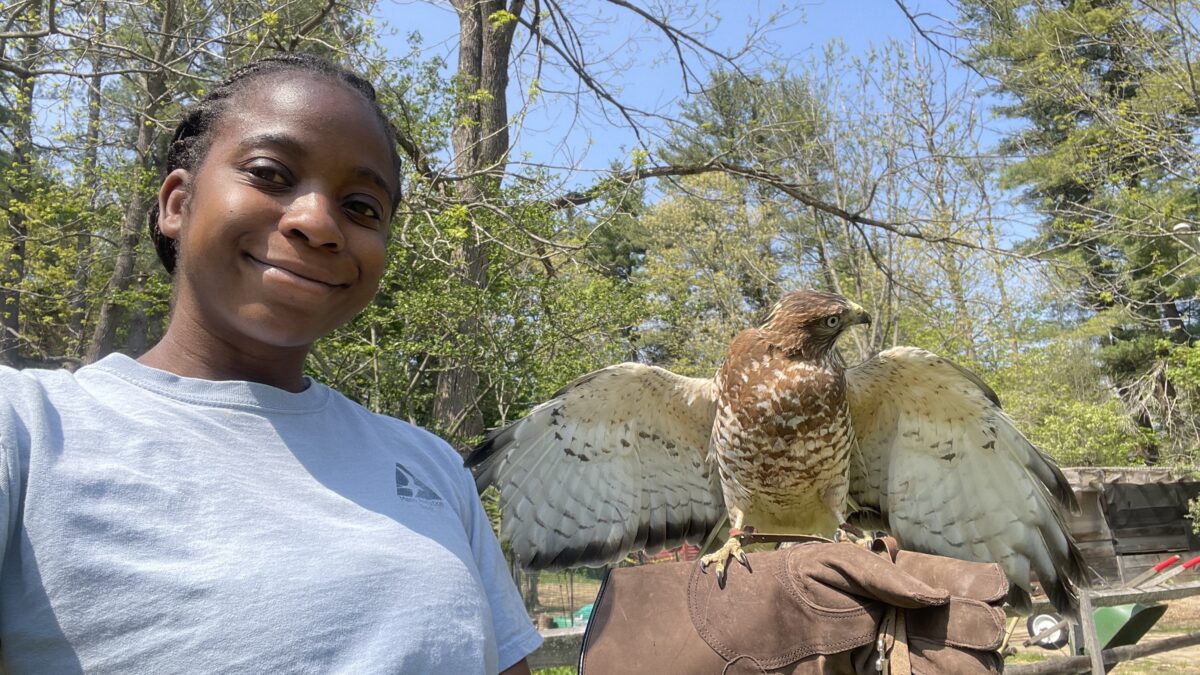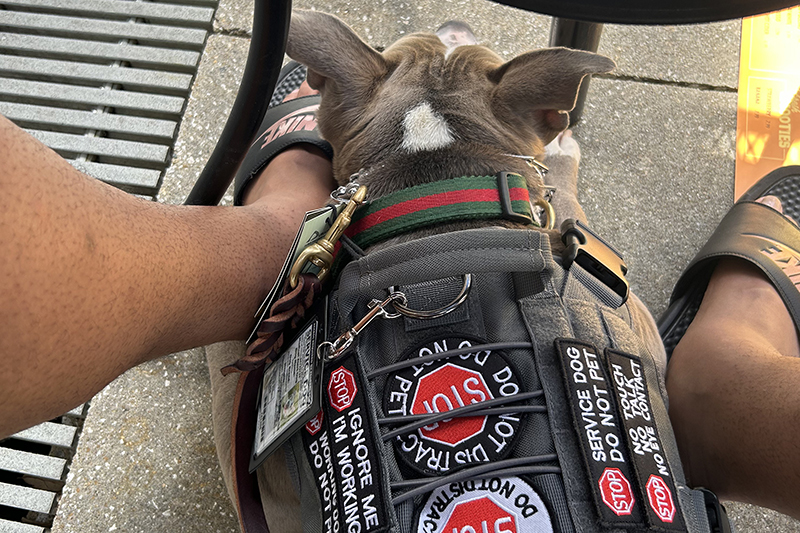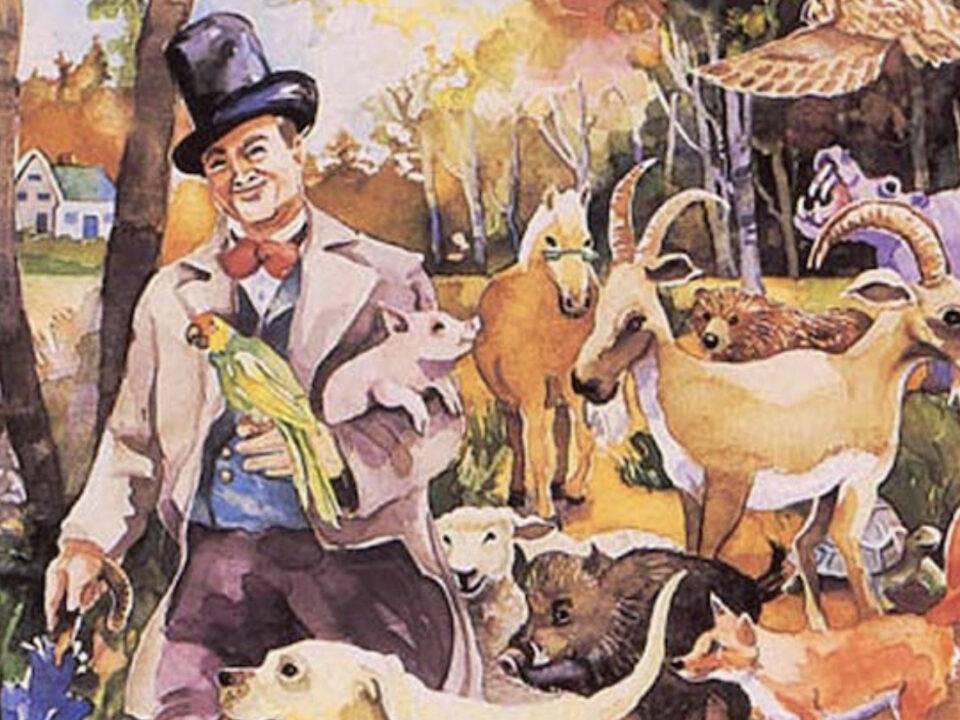Companions and Animals for Reform and Equity Receive Historic $6.5 Million Grant to Help BIPOC Communities and their Pets
July 17, 2023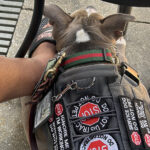
Hidden Housing Discrimination: My Experience as a Black Queer Woman with a Pit Bull Service Animal
July 1, 2024By: Khangelani Mhlanga
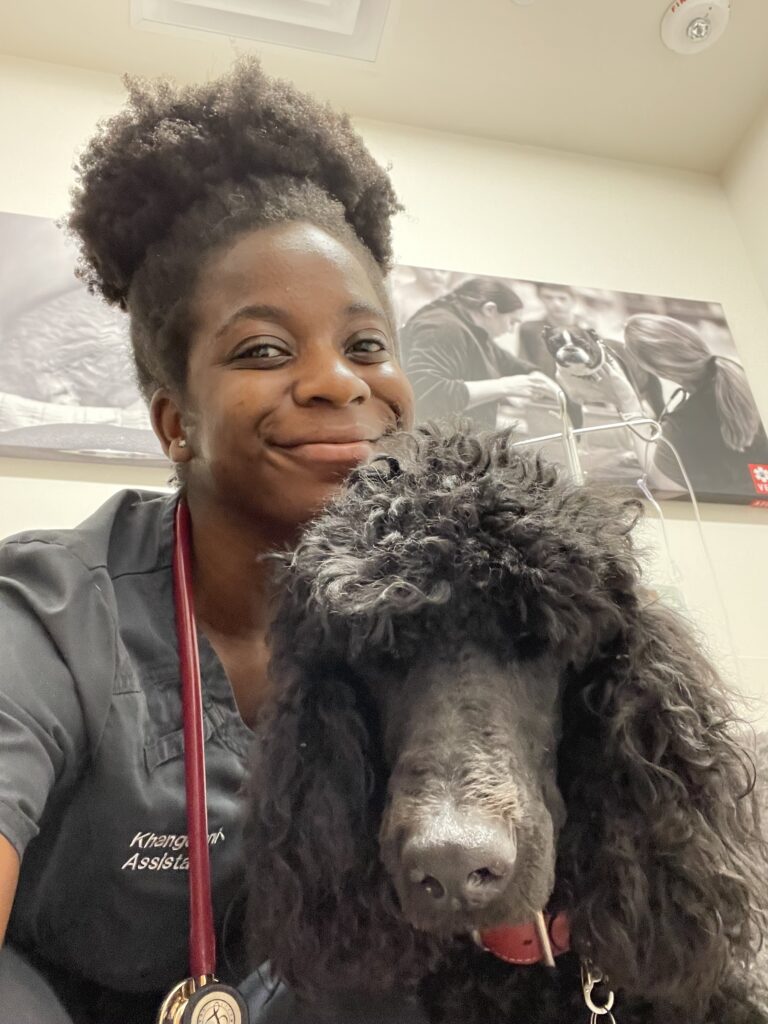
Growing up, I spent most school vacations at my mother’s rural village in Mutare, Zimbabwe. Herding cattle, milking cows, and tending to corn crops were standard daily activities that never felt like chores, though they were, because that was just part of family life. I often heard neighbors speak of baboons raiding crops or people being pulled into rivers by crocodiles whilst crossing rivers or washing clothes. Our culture teaches us to have a healthy respect for wild animals. In fact, we have assigned family totem animals, of which it is sacrilege to hunt or eat. I questioned whether these conflicts were inevitable and imagined myself championing both sides someday.
Although I never had any companion animals (my mother’s religion discouraged it), I couldn’t shake off the love for all creatures great and small! After high school, I had the freedom to start pursuing my passions, so I decided to work for the local SPCA. The doctors I shadowed wanted to make sure I fully understood the depth and scope of their work since it was my first clinical experience. Under their supervision, I participated in all consults, watched surgery, assisted in necropsies, and much more. It was the most rewarding experience I have ever had. Summer of 2021, I was thrilled to be hired as a veterinary assistant at an emergency hospital. A door had been opened to finally gain clinical experience in the US! I was working 13-hour shifts seeing all kinds of acute trauma and illnesses, from car accidents to toxin ingestions. Emergency medicine requires a clear mind, swift response, flexibility, and creativity. My experiences affirmed that veterinary medicine isn’t all roses and sunshine and solidified a deeper understanding of the profession. It truly is a commitment to provide the best care with what we have, when we can, while also taking care of ourselves to avoid burnout.
I love that growing up in a country species rich in wildlife, with so many people living close to protected areas gave me the chance to see first-hand how climate change, political and economic instability affect the population, and wellbeing of humans and non-human animals. In this globalized community, it is becoming more apparent that there is an interconnection between people, animals, and the environment with the most recent example being the SARS-CoV-2 pandemic. During my post-graduate fellowship with the Drumlin Farm Wildlife Sanctuary, I gained more hands-on experience with a variety of species. It confirmed that my passion lies in emergency, wildlife, and public health education.
I aspire to champion sustainable solutions for mitigating human-wildlife conflict through a multifaceted approach encompassing public health education, conservation efforts, and community development. My goal is to innovate new strategies that safeguard both our invaluable wildlife and human populations. I acknowledge the immense perseverance and resilience demanded by this endeavor, yet I am confident that my past experiences, coupled with
a comprehensive veterinary education, will equip me for the challenges ahead. Throughout my journey, I have been fortunate to receive support from various departments at Ithaca College, aiding me in GRE preparation, application fees, mock interviews, and providing a conducive interview environment. Despite facing financial hardships and limitations due to my immigration status, I worked all throughout school, maintained academic excellence, and actively sought animal and research experiences.
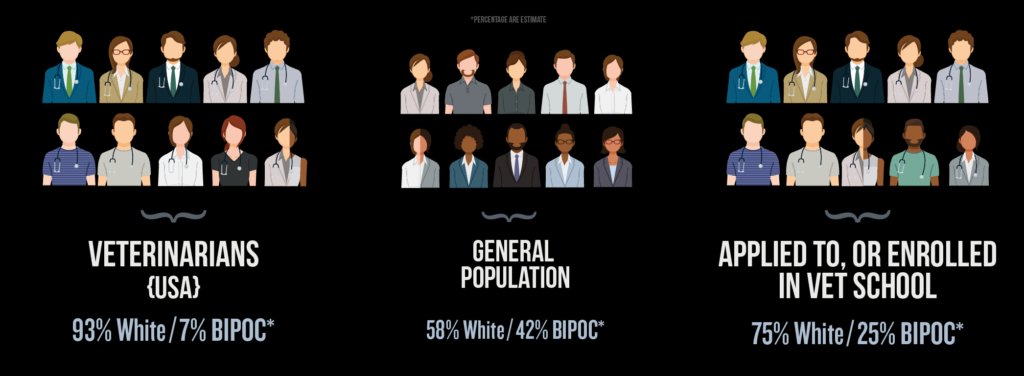
Only 2% of Vets in the U.S. are African American and less than 1% are Indigenous.
I am not a permanent resident of the United States and would be enrolling as an international student. As an international student, I must demonstrate proof of funds, whether through cash, bank statements, or grants, to cover
at least the first year of my enrollment in a US veterinary program. Additionally, my immigration status prohibits me from obtaining loans without an eligible cosigner. To put this into perspective, the cost of attendance at UPenn is approximately $99,950, and at Tufts, it’s around $93,000. Providing proof of this amount of money is a daunting task,
at best.
In 2021, I applied to five veterinary schools for a Doctor of Veterinary Medicine degree. Although the process was arduous, I was ecstatic to receive acceptances from Royal Veterinary College, Cornell University, and Ohio State University. Unfortunately, due to financial constraints, I had to decline these offers. However, this year brought exciting news as I received acceptances from seven out of the nine veterinary schools I applied to, including Tufts, Cornell, University of Melbourne, Royal Veterinary College, Virginia-Maryland, UPenn, and Michigan State. Louisiana State also kindly offered me an alternate position. Ultimately, I decided to accept Tufts University’s offer, as they fit best with my career goals and provided a more generous financial aid package. Nevertheless, there remains a substantial gap of approximately $47k per year that I need to cover.
Tufts University requires proof of funding for the first year by June 30th, 2024 (approximately $93,000 USD), along with
a financial plan for the subsequent three years. As an international student with limited scholarship options and lacking a loan cosigner, I am reaching out in hopes of sharing my story and trying to find solutions.
– Khangelani Mhlanga
ngelani.mhlanga@gmail.com


